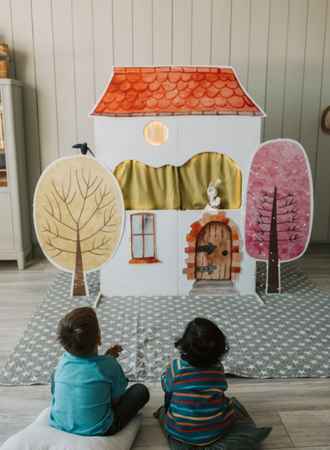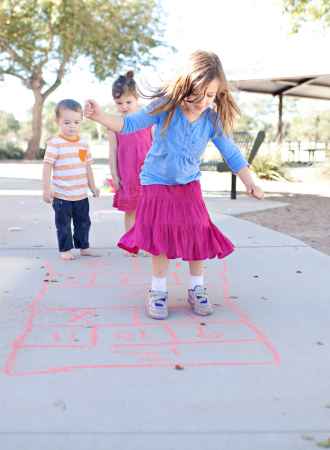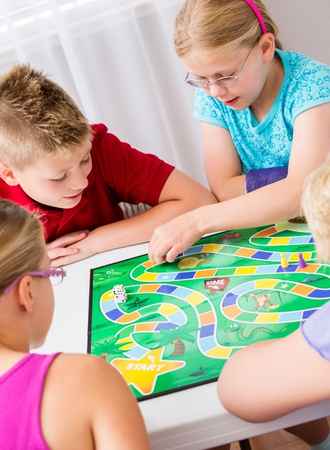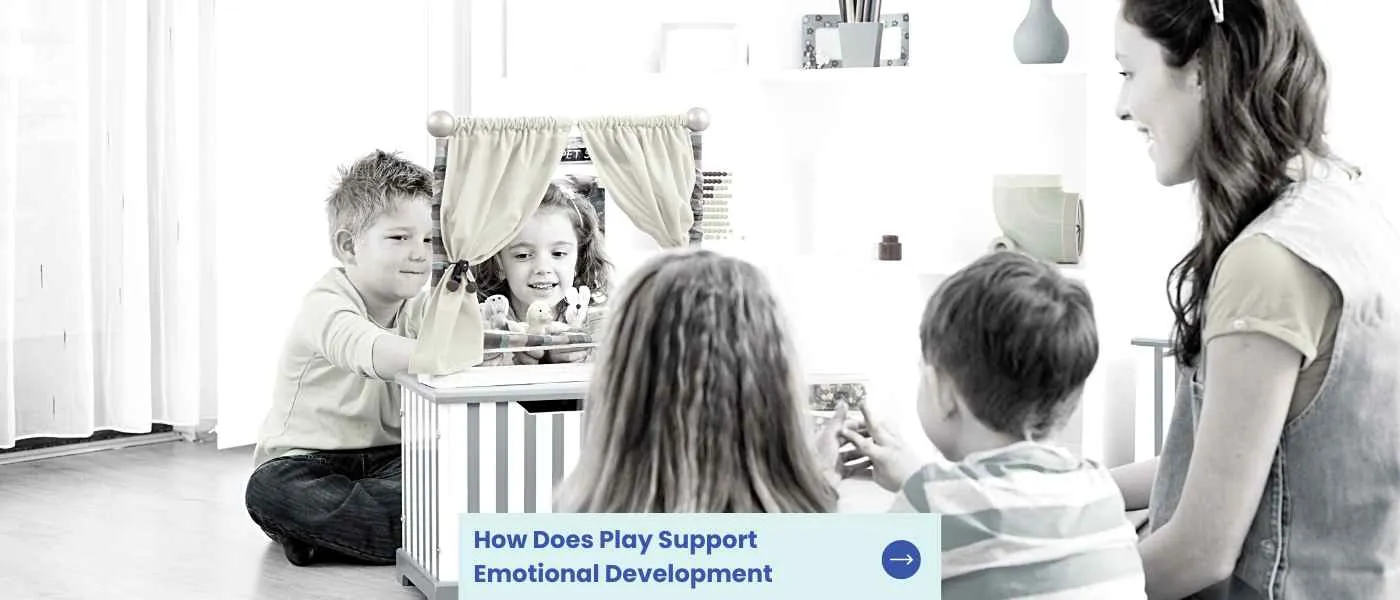Play is a vital part of any child’s development, but why is play important in the emotional development of kids? As parents and educators, it can be difficult to understand the importance of different types of play in fostering positive emotions.
In this blog post we will explore how various forms of play affect children’s emotional growth and provide strategies for enhancing these benefits. We’ll also discuss signs that your child is developing emotionally through playing as well as tips for supporting their progress.
Key Takeaways on The Emotional Benefits of Play
- Play is a vital part of childhood development and can provide children with the opportunity to learn important skills, such as emotional regulation.
- By providing children with the opportunity to learn through play-based activities, they can build emotional development skills such as self-confidence, decision making and creativity.
- During play, children learn about the world around them and they pick up new skills.
Play is an integral part of a child’s emotional development. Through various forms of play, children learn to understand, express, and manage their emotions.
| Type of Play | Description | Emotional Development Support |
|---|---|---|
| Solitary Play | Play that occurs when a child plays alone. | – Develops self-soothing techniques. – Builds self-awareness and understanding of personal emotions. |
| Parallel Play | Play where children play side by side but don’t necessarily interact or engage with each other. | – Develops tolerance and respect for others. – Offers a sense of security and comfort from being around peers. |
| Associative Play | Play where children interact and share materials, but may not play towards a common goal. | – Teaches sharing and cooperation. – Builds empathy by understanding others’ feelings and perspectives. |
| Cooperative Play | Play where children collaborate towards a common goal or play scenario. | – Enhances skills in negotiation and compromise. – Develops a sense of belonging and teamwork. |
| Physical Play | Activities like running, jumping, climbing, or playing tag. | – Releases emotional tension. – Builds confidence and self-esteem through physical accomplishments. |
| Dramatic/Role Play | Play in which children take on roles and act out scenarios. | – Allows exploration and expression of various emotions in a safe environment – Helps in processing real-life experiences. |
| Constructive Play | Play that involves creating or constructing something, e.g., building blocks or puzzles. | – Boosts feelings of accomplishment and pride. – Teaches patience and perseverance. |
| Games with Rules | Structured games that have specific rules, such as board games or sports. | – Teaches emotional regulation, especially in handling wins or losses – Encourages fair play and sportsmanship. |
| Digital/Video Play | Play involving video games or digital apps. | – Can help in problem-solving and coping with frustration. – Provides opportunities for social interaction online. |
| Therapeutic Play | Guided play used to help children process and cope with traumatic or stressful experiences. | – Facilitates expression of deep-seated emotions.- Provides a safe environment for emotional healing. |
When it comes to emotional development specifically, play offers numerous benefits:
- Self-Expression: Play allows children to express their feelings, even if they don’t yet have the words to articulate them. Through role-playing, art, and other imaginative activities, children can communicate emotions such as happiness, sadness, fear, and anger.
- Understanding Emotions: When children engage in pretend play or role-playing, they often mimic adults or peers. This imitation helps them understand and navigate complex emotions and situations they might observe but not fully comprehend.
- Coping Mechanisms: Play provides a safe space for children to process and come to terms with challenging experiences. For example, a child who’s experienced a traumatic event might reenact it through play, helping them understand and cope with their feelings.
- Building Empathy: When children play with others, they learn to recognize and respond to their peers’ emotions. This recognition and response help build empathy, an essential skill for understanding and caring about others’ feelings.
- Frustration Tolerance: Play can be challenging. Whether it’s a puzzle that’s hard to solve or a tower that keeps falling down, children learn patience, persistence, and how to handle frustration and disappointment through play.
- Self-Regulation: Games often come with rules, and children learn to regulate their emotions and behaviors to adhere to these rules. Waiting one’s turn in a board game or following rules in a group play scenario teaches impulse control and emotional self-management.
- Building Self-esteem: Mastering new skills during play boosts a child’s confidence and self-worth. Achieving goals, no matter how small, contributes to a positive self-image.
- Secure Attachments: Play facilitates bonding between children and caregivers. This bonding is essential for forming secure attachments, which are foundational for healthy emotional development.
- Social Skills: Interacting with peers during play teaches children vital social skills like sharing, cooperation, negotiation, and conflict resolution. These interactions provide ample opportunities for understanding and managing emotions in social contexts.
- Safe Exploration: Play lets children explore different scenarios and outcomes in a risk-free environment. They can face fears, try out different roles, and navigate various emotions, all in the safe confines of play.
- Relaxation and Stress Relief: Just as adults might relax by reading a book or watching a movie, children find relaxation and stress relief in play. Engaging in enjoyable activities can be therapeutic and offers a break from any stress or anxiety they might be feeling.
In essence, play is a natural and integral way for children to explore, understand, and express their emotions. It provides the tools and experiences needed for healthy emotional development, preparing children for more complex emotional situations as they grow older. Encouraging various types of play and providing a supportive environment for it is crucial in nurturing a child’s emotional well-being.
Types of Play That Support Emotional Development
Here are the different forms of play for social and emotional development:
Imaginative play
Toys can have a positive impact on a child’s early development. Imaginative play helps children develop their emotional skills. It allows them to express themselves and discover different scenarios, while also developing creative thinking skills.
Examples of imaginative play include role playing, make believe, storytelling, puppet shows, and dress up. Through these activities, children can practice expressing emotions in a safe environment where they are free to experiment with different ways of responding to situations without fear or judgement.

Physical play

Physical activity promotes physical health but it is another great way for children to learn about better movement control, as well as develop physical strength , gross motor skills and coordination. Activities such as running around the playground or engaging in team sports help kids become more aware of how their body feels when they experience different emotions like joy or frustration.
Additionally, outdoor activities provide opportunities for social interaction which can further support emotional development by teaching kids how to cooperate with others and work towards common goals while playing a simple game.
Group play
Social play experiences are essential for healthy emotional development as it teaches children how to interact with others in a respectful manner while also helping them understand the emotions of those around them better, what different facial expressions mean and learn social cues.
Playing cooperative games such as board games or card games encourages communication between players, building empathy among participants by allowing each person’s perspective on the game be heard equally regardless of age or skill level.
This type of collaborative play also provides an opportunity for solving problems which helps strengthen self-confidence in young people who may feel overwhelmed by difficult tasks alone but find success when working together with peers towards a shared goal.

How to Encourage Play for Emotional Development
Here are different ways to support emotional development through play:
- Create an environment that promotes unstructured play that allows children to engage with their environment in their own way, promoting creativity. It also helps develop social skills such as cooperation, communication, and conflict resolution as children interact with each other during play. Additionally, unstructured play can improve physical skills such as balance, coordination, and fine motor skills.
- Limit your children’s screen time, especially during solitary play. Limiting children’s screen time is crucial for their overall development and well-being. Excessive screen time can lead to physical health problems, such as obesity, and can also impact their cognitive, social, and emotional development.
- Pretend play allows children to discover new worlds and engage in imaginative scenarios that encourage creativity and imagination. Through make believe play and taking on different perspectives, children learn to empathize with others and understand different points of view. Pretend play also helps kids develop their language, social, and emotional skills as they interact and communicate with others in a playful and non-threatening environment.
- Encourage children to play games with other children in their age group, especially during early childhood. As children play with others, they develop skills on how to express feelings better and how to deal with big emotions.
- There’s no right or wrong way to play. Kids learn through trial and error and exploration, which are components of optimal cognitive development.
- Fostering positive relationships with peers through group play ideas and games is another key component of emotional development that can be supported through playtime. Group activities help teach cooperation skills such as sharing, problem-solving, turn-taking, empathy and respect for others’ opinions.
Signs That Your Child Is Developing Positively Through Play-Based Learning Experiences
Play is an essential part of a child’s emotional development. Through play, children can learn how to express their feelings and manage stress in healthy ways. As parents, it’s important to recognize the signs that your child is developing positively through play-based learning experiences.
Increased self-confidence and self-esteem

Playing with peers helps children build self-confidence and self-esteem as they learn how to interact with others. Signs of increased confidence include initiating conversations, making eye contact during conversations, and being able to take turns without becoming frustrated or angry.
Improved decision making, and creative thinking abilities
Play encourages creative thinking by allowing children to discover different solutions for problems they encounter while playing games or engaging in imaginative activities. This type of skills helps them develop decision making skills which will be beneficial later on in life when faced with difficult choices.
Social development
Through playtime activities such as role playing or talking about emotions during story time sessions, children can learn how to identify their own feelings as well as those of others around them. They also gain valuable insight into managing stressful situations effectively by recognizing triggers that cause anxiety or fear, so they can find appropriate coping mechanisms for dealing with these emotions appropriately instead of lashing out at someone else or themselves due to frustration or anger.

FAQs on Playful Learning
How Do Children Use Play to Express Emotions?
Play is an important part of a child’s development, allowing them to explore their emotions in a safe and creative way. As a child plays, they can express themselves without fear of judgement or criticism. They can act out scenarios that may be difficult for them to verbalize, helping them process their feelings and make sense of the world around them.
Play also helps kids develop problem-solving skills as they figure out how to navigate through different situations and come up with solutions on their own. By engaging in play activities, children are able to better understand and manage their emotions while having fun at the same time.
How Do You Support Emotional Development in a Child’s Life?
Supporting emotional development in positive ways starts with providing a safe and nurturing environment. This means creating an atmosphere of acceptance, respect, and understanding for all children. It also involves actively listening to children’s feelings and validating their emotions without judgement or criticism.
Additionally, caregivers should provide opportunities for playtime that encourages exploration and creativity while teaching problem-solving skills through positive reinforcement.

What Is Free Play and How It Helps Children Learn?
Free play is a type of play that is not directed or structured by adults, but rather is initiated and led by children themselves. It allows children to use their imaginations, explore their interests, and engage in unstructured, open-ended activities.
Free play also helps children develop social skills by giving them opportunities to interact with their peers. As children engage in free play, they learn to communicate with others, share ideas, and negotiate conflicts. This can help children build strong relationships with their peers and develop a sense of empathy and understanding for others.
In addition, free play helps kids develop physical skills as they engage in activities such as running, jumping, and climbing. This can help children develop coordination, balance, and spatial awareness.
Free play also helps children develop cognitive skills such as attention, memory, and language. As children engage in imaginative play, they often create complex narratives and storylines that require them to remember details and use language in creative ways.





